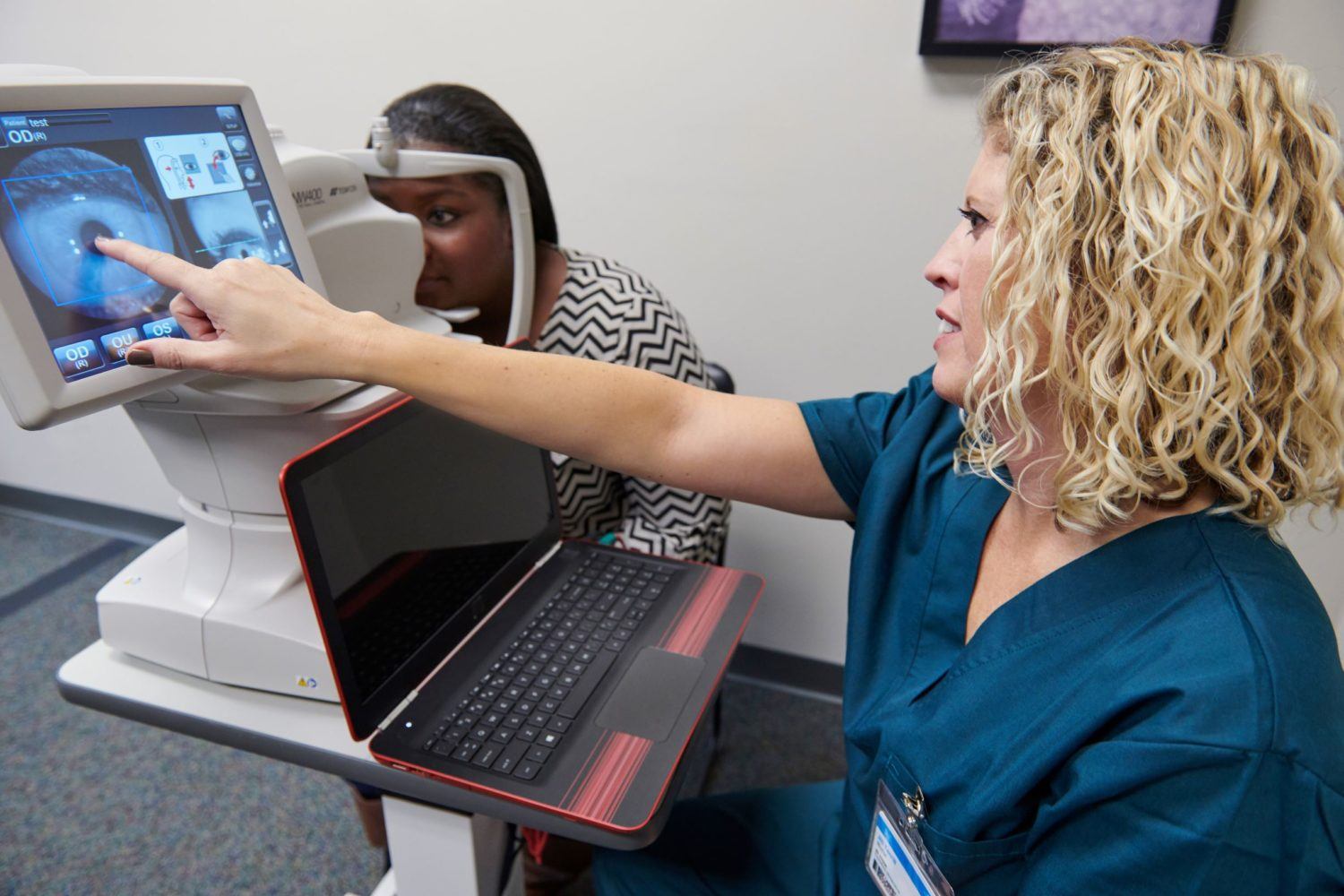
– A Georgia Primary Care Clinic is now using an autonomous AI system called IDx-DR to test patients for diabetic retinopathy, a leading cause of blindness.
– IDx-DR is cleared by the FDA to make an assessment without the need for a clinician to also interpret the image or results, making it usable by healthcare providers who may not normally be involved in eye care.
– The exam typically takes 5-10 minutes. Nurses use an automated fundus camera to take pictures of the patient’s retinas – the back part of the eye.
Two primary care doctors in Georgia are closing the eye care gap for people with diabetes using artificial intelligence. Lee Herman, MD, and Michael Conlin, MD are internists at Johns Creek Primary Care, a primary care clinic in northern Atlanta. They are among the first doctors in the nation to test patients for diabetic retinopathy, a leading cause of blindness, using IDx-DR, an FDA-cleared autonomous AI system.
Impact of Diabetes on Visual Loss & Blindness
Over 30 million Americans have diabetes and are at high risk of visual loss and blindness from diabetic retinopathy. Experts recommend annual eye exams, but a Diabetes Care study shows that as few as 15% of Medicare patients follow through on eye care referrals.
Johns Creek Primary Care participates in the Emory Healthcare Network’s Accountable Care Organization (ACO). The diabetic retinopathy exam is an important diabetes care quality measure tracked by many health systems and ACOs because early detection of diabetic retinopathy has been shown to be a cost-effective way to improve patient outcomes.
Patient Testing Results
Herman and Conlin have tested more than 150 patients using IDx-DR to date. Twenty patients who did not have a previous diagnosis of diabetic retinopathy were identified with disease by the AI system. Patients with positive results are referred on to an ophthalmologist for further monitoring and treatment to prevent vision loss.
Bill Lamm, a retired 67-year-old with diabetes from Duluth, Georgia, is a patient of Dr. Herman’s who recently received a positive result from IDx-DR.
“I got the results back right after the test letting me know there was something there,” said Lamm. “My ophthalmologist called me in right away.”
Lamm’s ophthalmologist, Larry Heit, MD, confirmed the presence of disease but that it was not at a level that required treatment, so he switched Lamm’s follow-up eye exam from annual to every 6 months for more regular monitoring.
“There are many borderline cases like Bill that simply require more monitoring,” said Dr. Heit. “Every patient is different, and disease can progress more quickly in some than others.”
Lamm has high praise for the clinic’s adoption of IDx-DR. “Dr. Herman is very proactive about introducing new diagnostic procedures and technologies to enhance oversight of my general healthcare,” said Lamm. “It’s unusual for a primary care physician to have the ability to check for retinopathy. If you have patients who never go to an eye care specialist because they don’t have glasses or other vision issues, the ability to make a first-time diagnosis in primary care is important.”
Dr. Heit agrees. He is thankful that Herman and other physicians are using IDx-DR to ensure patients are tested for diabetic retinopathy.
“As an ophthalmologist, I want to make sure that patients who currently have disease and are at greatest risk for vision loss are in my care,” said Heit. “Putting an AI system like IDx-DR in primary care can help ensure that patients are aware they have disease and follow through on their eye care appointments sooner. This is especially critical for patients who don’t get an eye exam annually or even years at a time.”
Dr. Herman stresses that, while IDx-DR is a valuable test, patients are still encouraged to see an eye care specialist.
“We make it clear to our patients that this not a replacement to a comprehensive eye exam, but the AI is very sensitive and can detect signs of disease that may not be visible to the human eye,” said Dr. Herman.
“From a diabetes management perspective, IDx-DR allows me to have a lot more control over patients getting all the recommended tests because I can now conduct the diabetic retinopathy exam in house,” said Dr. Herman. “Only about 16% of my patients used to have their diabetic retinopathy exam documented in their charts; I am now trending close to 100% documentation.”
